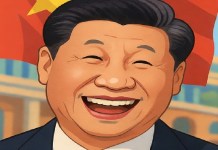The growing tensions amid trade war forced the International Monetary Fund (IMF) to cut its world economic growth forecasts for 2019 and 2020. The unresolved trade tensions, especially between the US and China, are causing damage to the global economy.
In the past few months, China’s economic slowdown and Europe’s “No Deal” Brexit is equally contributing to turbulence in the financial markets.
The IMF predicted the global economic growth at 3.5 percent in 2019 and 3.6 percent in 2020. The new forecast is down 0.2 and 0.1 percent point respectively from October’s forecast. This clearly shows that the policymakers need to resolve trade war as soon as possible.
IMF Managing Director Christine Lagarde said that “After two years of solid expansion, the world economy is growing more slowly than expected and risks are rising.” Further, she stressed the need to fight serious slowdown by boosting economies with the help of policymakers.
With the frequent changes in the global scenario, IMF has decided to cut its 2019 growth forecast for developing countries to 4.5 percent, down 0.2 percentage point from previous year projection. The U.S. growth was projected at 2.5 percent this year and 1.8 percent in 2020 by IMF due to rise in domestic demand. On the other hand, China growth forecast recorded 6.2 percent in both 2019 and 2020. The growth forecast for China may change due to economic slowdown amid trade tensions.
The IMF report stated that “As seen in 2015–16, concerns about the health of China’s economy can trigger abrupt, wide-reaching sell-offs in financial and commodity markets that place its trading partners, commodity exporters, and other emerging markets under pressure.” The report also said that Britain is expected to achieve a 1.5 percent growth this year. This projection is based on the assumption of an orderly exit from the European Union.
The IMF is urging policymakers to work on structural reforms to prevent slowdowns. And also stressed the need to address income inequalities and financial sector reforms. However global growth momentum is on the rising. “The main shared policy priority is for countries to resolve cooperatively and quickly their trade disagreements and the resulting policy uncertainty, rather than raising harmful barriers further and destabilizing an already slowing global economy”, IMF said in a report.




